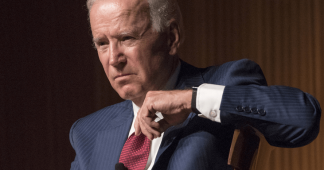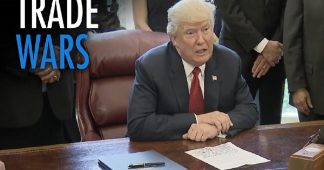John Kenneth Galbraith was an intellectual celebrity 50 years ago—and it would be a mistake to ignore him today
U.S. President-elect Joe Biden’s foreign-policy advisors have been eager to convey that “America is back” and ready to resume leadership of the Western world. But Biden and his team may soon discover that a foundation of past U.S. leadership—a reputation for competence—has eroded beyond easy repair. Donald Trump was only a symptom of this erosion, which has developed over decades of military misadventures, financial debacles, and now the calamity of COVID-19. And underlying all these reasons, as Trump saw but could not remedy, has been industrial decline.
In America’s heyday, the dominant economic formation was the large industrial corporation. Giants like General Electric, General Motors, Ford, Bethlehem Steel, International Harvester, and IBM provided the backbone of U.S. military power and technological dominance on world markets. These firms grew up on American soil, survived the Depression, and were buttressed by the New Deal and the mobilization for World War II. In the postwar years, their power was balanced by strong trade unions, the organized voices of consumers and independent scientists, and an engaged government that weighed those voices against those of big business. This was the reality described and endorsed by my father, the economist John Kenneth Galbraith. That reality still exists out there—but America’s industrial firms are no longer the world’s leaders, and those that are, are not in the United States.
The pandemic has now put Galbraith’s global legacy into stark relief. One can now map out the rise and decline of nations simply by distinguishing between those that have continued along the lines that once defined U.S. economic success as Galbraith saw it and those that fell under the spell of illusions about free, competitive, and self-regulating markets and under the dominating power of finance. The United States today finds itself sadly in the latter group, alongside the United Kingdom, hanging on to a self-image that no longer corresponds to reality and that carries little credibility in the wider world.
Continue reading at foreignpolicy.com











